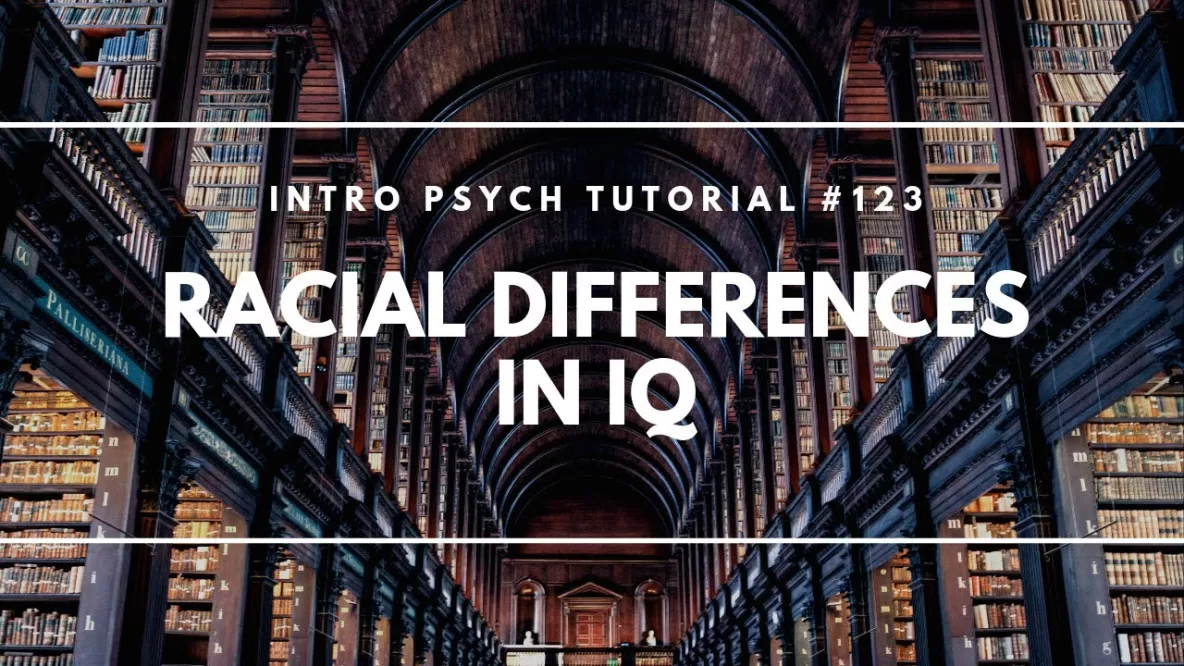This video covers 10 practice multiple choice questions on intelligence and testing and includes theories of intelligence, key figures in the study of intelligence, types of validity and reliability, and more. I hope this can help you to review your … Read More
Can You Improve Your IQ?
In this video I consider interventions aimed at improving cognitive performance including brain stimulation, off-label drug use, nootropics, and brain training games and apps. While unfortunately there isn’t much evidence that any of these can improve fluid intelligence (as measured … Read More
Stereotype Threat & Identity Contingencies
In this video I consider that while broad environmental factors like nutrition and education can’t fully account for racial gaps in IQ, more subtle effects on individuals may help to explain some of these differences. Claude Steele and Joshua Aronson … Read More
Expectation, Mindset, and IQ
In this video I discuss Rosenthal and Jacobson’s “Pygmalion in the Classroom” study on teacher expectations and student improvement as well as school tracking, the stability of IQ scores, Carol Dweck’s research on fixed and growth mindsets, and distinctions between … Read More
The Flynn Effect and Environmental Factors on IQ
In this video I describe the Flynn Effect, which refers to the dramatic rise in average IQ over the past several decades. Environmental factors like improved nutrition and access to education may partially explain this improvement and people who were … Read More
Racial Differences in IQ
In this video I consider racial differences in average IQ scores. This controversy reached a peak with the publication of “The Bell Curve” by Richard Herrnstein and Charles Murray in 1994. This led to publication of several papers on race … Read More
Sex Differences in IQ
In this video I consider sex differences in IQ scores. While average male and female IQ scores are comparable, there are differences in performance on certain types of tasks including verbal fluency, spatial ability, math problem-solving, use of complex prose, … Read More
Group Differences in IQ
In this video I consider group differences in IQ scores and the history of how group differences by race and nationality have been interpreted. This includes discussion of the eugenics movement, social Darwinism, the Army Alpha and Army Beta tests … Read More
Specific Genes and IQ
In this video I describe some specific genetic disorders that are known to have negative consequences for intellectual development including Down Syndrome, Fragile X Syndrome, Williams Syndrome, and Phenylketonuria. Don’t forget to subscribe to the channel to see future videos! … Read More
What Causes IQ Differences?
In this video I address the question of what causes IQ differences between people. This relates to the nature/nurture debate in considering the strength of genes and environment and these interact to shape intelligence. Twin and adoption studies allow us … Read More
- Page 1 of 2
- 1
- 2










